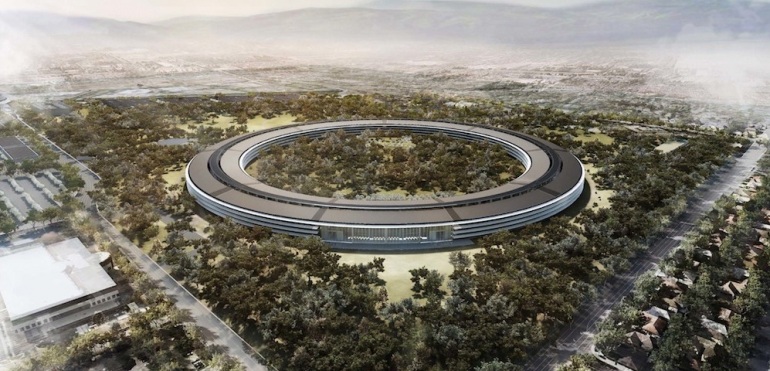Apple's 100% renewable solar headquarters

The Cupertino, California city council granted final approval to Apple, Inc on Tuesday for the consumer electronics company to begin construction of a new, 176-acre corporate headquarters.
The building, dubbed Apple Campus 2, will feature the largest solar panel array in the U.S. dedicated to a single corporate campus, and among the largest in the world.
The campus is anchored by a massive, circular building 1200 feet in diameter and providing approximately 2.8 million square feet of office space. That translates to more than 750,000 square feet of space on the building’s roof, nearly all of which will be comprised of solar panels.
Combined with on-site fuel cells and use of grid-purchased renewable energy during peak hours, Apple says that its new campus will be powered 100 percent by renewable energy and will not result in any net additional greenhouse gas emissions.
Apple has emerged as a leader in the tech industry — and among the most notable in the entire corporate world — for its commitment to sustainable energy to power its facilities. Earlier this month, the company announced that its new manufacturing plant in Mesa, Arizona would also be powered by 100 percent renewable energy, mostly in the form of another large solar panel array to be constructed in the city limits and a separate geothermal power source on site. Its current corporate campus currently utilizes 100 percent renewable energy as well.
The new construction project, including the introduction of the photovoltaic panels, will also add an estimated 7,400 quality jobs to the city of Cupertino and generate an additional $11 million in revenues annually.
Originally published by Climate Progress. Republished with permission.













